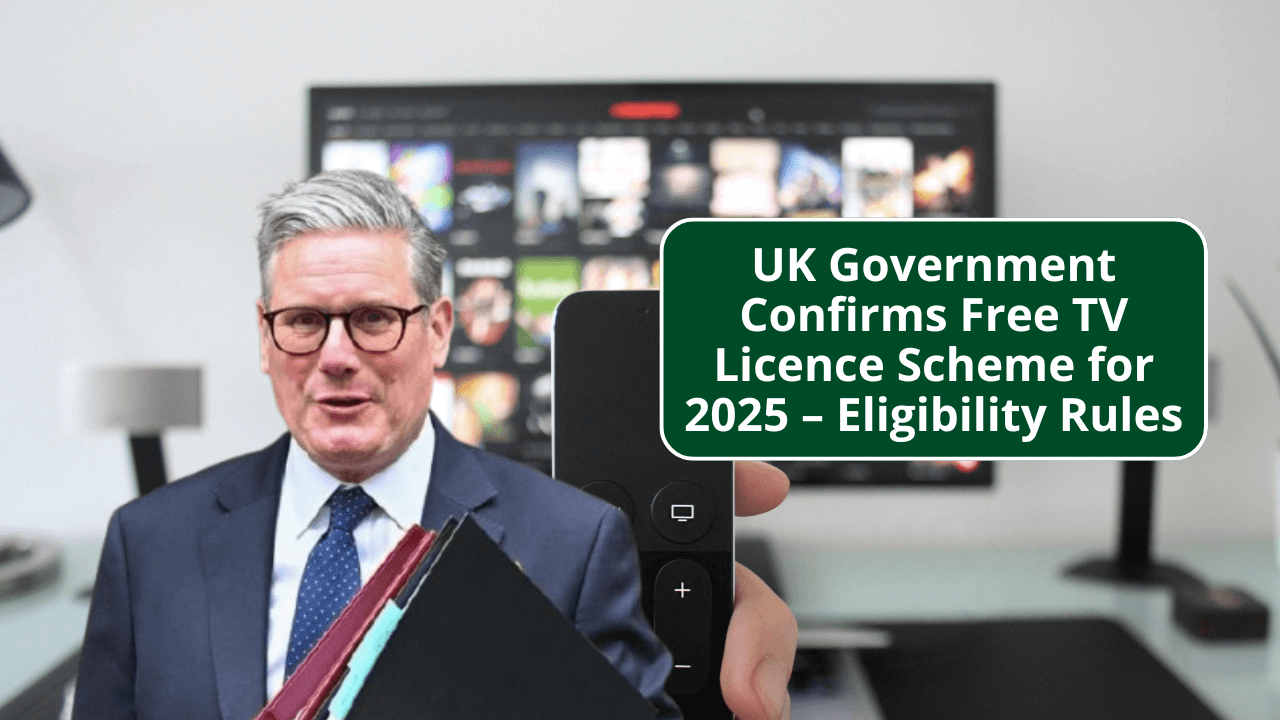Introduction
The UK government has recently confirmed a new free TV licence scheme set to launch in 2025. This announcement has caused a stir among citizens, particularly those who rely on the BBC for news, entertainment, and educational programming. Understanding the eligibility, costs, and the reasons many households will still be required to pay the standard £159 licence fee is crucial.
What the Free TV Licence Scheme Covers
The new scheme primarily targets specific groups who traditionally face financial barriers in accessing television services. It aims to provide free TV licences for certain demographics, including the over-75s, low-income households, and those receiving specific government benefits.
Under the scheme, eligible recipients will no longer need to pay the annual £159 fee, effectively reducing household expenses. However, it is important to note that this does not extend to all citizens, which is why many will continue to pay the full fee.
Eligibility Criteria
Eligibility for the free TV licence in 2025 is primarily based on age, income, and benefit status. The government has outlined the following criteria:
- Age: Individuals aged 75 and above qualify automatically for a free licence.
- Benefits: Certain benefits, such as Pension Credit, mean the recipient can access a free licence.
- Low-income households: Households meeting specific income thresholds may also qualify.
Applicants will need to provide proof of eligibility, which may include benefit statements or other official documentation. The application process will be straightforward but requires timely submission to ensure coverage from the start of the scheme.
How to Apply
Applying for the free TV licence is simple but must be done carefully to avoid delays. The process involves:
- Checking eligibility: Verify if you meet the age or benefit requirements.
- Gathering documentation: Collect proof of age or benefit status.
- Submitting the application: Apply online through the official BBC website or by phone.
Applications can be processed quickly if all documents are submitted correctly. Successful applicants will receive confirmation and do not need to pay the licence fee.
Costs for Those Not Eligible
Despite the introduction of this scheme, many households will continue to pay the standard £159 annual TV licence fee. This includes:
- Individuals under 75 who do not receive qualifying benefits.
- Households whose income exceeds the thresholds for low-income exemptions.
- Those who use a TV primarily for non-BBC services, which still require a licence.
The government has made it clear that while the scheme alleviates costs for some, it does not eliminate the TV licence fee for everyone.
Why Many Will Still Pay
Several factors contribute to why a significant portion of the population will still pay £159:
- Age and benefit restrictions: Only specific age groups and benefit recipients qualify.
- Household income: Many families earn above the set limits for free access.
- Usage: The licence is mandatory if a household watches or records live TV, regardless of age or income.
This ensures that the BBC continues to receive funding for its services while supporting those most in need.
Impact on Pensioners
For pensioners, the free TV licence can significantly reduce monthly expenses. Those over 75 who qualify will no longer need to worry about the £159 fee, offering financial relief and better access to information and entertainment.
However, not all pensioners will benefit. Those receiving only state pensions without additional qualifying benefits may still need to pay.
Impact on Low-Income Households
Low-income households that meet eligibility criteria will also benefit. The scheme ensures that financial limitations do not prevent access to television and the BBC’s educational and informative content.
Households must apply and provide the necessary documentation to secure the free licence, emphasizing the importance of understanding the eligibility process.
Potential Challenges
While the scheme is beneficial, there are potential challenges:
- Application errors: Incorrectly submitted documents may delay approval.
- Awareness: Some eligible individuals may not know about the scheme.
- Partial coverage: The scheme does not cover all demographics, which could lead to confusion.
Efforts are underway to communicate the details clearly and ensure smooth implementation.
Government Funding and Sustainability
The free TV licence scheme is funded through government allocations. This funding aims to balance public access to television with the financial sustainability of the BBC.
By focusing on the most vulnerable groups, the government intends to maintain a fair approach while ensuring that the majority of licence revenue continues to support broadcasting services.
Comparisons to Previous Schemes
In the past, free TV licences were primarily offered to the over-75s. The 2025 scheme expands on this by including additional low-income households and certain benefit recipients.
This broader approach reflects a growing awareness of financial pressures on citizens and a commitment to making media more accessible.
Tips for Ensuring Eligibility
To avoid delays and ensure eligibility, applicants should:
- Regularly check the official BBC website for updates.
- Prepare documents in advance, including proof of age or benefits.
- Apply early to avoid processing backlogs.
- Contact the BBC helpline if there are any uncertainties about eligibility.
Following these steps can make the process smoother and ensure timely access to the free licence.
Conclusion
The UK Government’s free TV licence scheme for 2025 is a welcome move for many citizens, particularly pensioners and low-income households. While it does not eliminate the need for some to pay the £159 fee, it provides significant financial relief for those eligible.
Understanding the eligibility criteria, application process, and costs for non-eligible households is crucial for navigating the scheme successfully. By staying informed and prepared, UK residents can ensure they take full advantage of this opportunity.
This scheme reflects the government’s commitment to accessibility and fairness, balancing the needs of vulnerable groups with the financial sustainability of the BBC. Whether you are a pensioner, a benefit recipient, or part of a low-income household, understanding your eligibility is the key to enjoying free TV in 2025.
